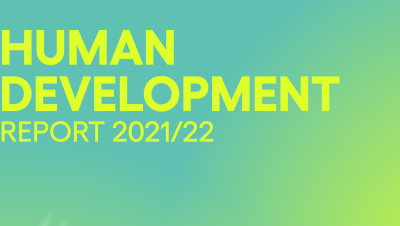On February 7th 2013, HDRO reignited the HDRO Seminar Series with a stimulating event entitled The Rise of the Global Middle Class: the implications for Human Development. The HDR 2013 The Rise of the South: Human Progress in a Diverse World examines the profound shift in global dynamics being driven by the fast-rising powers of the developing world and the implications of this phenomenon for human development. Among the key features of this shift is the global emergence of a middle class, a larger share of which is residing in the South. Khalid Malik, Director, HDRO was recently quoted in Thomas Friedman’s column on the virtual middle class in India. The seminar provided an avenue to discuss the emergence and features of the increasingly important global middle class.
Following introductory remarks by Ms. Rebecca Grynspan, Associate Administrator, UNDP, Luis Felipe Lopez Calva, Lead Economist, Latin America and Caribbean Region, The World Bank, presented key results from the report Economic Mobility and the Rise of the Middle Class in Latin America. He highlighted how despite being classified as non-poor, large segments of the population in Latin America live without the economic security that is a prerequisite for human development and for individuals to lead purposeful and fulfilling lives. In a scenario where the vulnerable still comprise the largest social class, the growing middle class has the potential to help redefine the ‘social contract’. However, their report does not find evidence that the middle class is exceptionally supportive of values leading to social cohesion and political stability. Moreover, the middle class is opting out of low quality public services, thereby exacerbating the divide from the poor. A more inclusive social contract with higher taxation and better services is called for to break the intergenerational cycle of poverty.
Elizabeth Zechmeister, Associate Director at the Latin American Public Opinion Project (LAPOP) at Vanderbilt University, next spoke to the changing mindset and thinking of the middle class in Latin America. Results from the LAPOP Americas Barometer 2012 survey show that self-identification as a member of the middle class is closely tied to economic security, and education. Those who consider themselves middle class tend to support the status quo economic and political situations and somewhat strikingly, are less supportive of distribution. Results from both presentations raise important questions and doubts about the ability of the new middle class to catalyze transformative change.
Chrystia Freeland, author of the acclaimed Plutocrats rounded off the discussion by shedding light on a related phenomenon, the emergence of a global class of the super-rich. The emergence of the global plutocracy challenges governments in their efforts to regulate markets, mobilize resources through taxation and foster social cohesion and equity, potentially reiterating and exacerbating a resistance to redistribution rather than strengthening support for a renewed social contract, which we may hope to see with the rise of the middle class.
The subsequent discussion was rich and varied. One important issue that was raised was the technical difficulty in identifying the middle class. Definitions vary from absolute measures to relative measures based on the actual distribution of the population. The discussion suggested that while defining and measuring the middle class is fraught with difficulties, it is still a meaningful exercise given the significance of this increasingly more well connected and vocal segment of society that is getting more consequential by the day.
The HDialogue blog is a platform for debate and discussion. Posts reflect the views of respective authors in their individual capacities and not the views of UNDP/HDRO.

